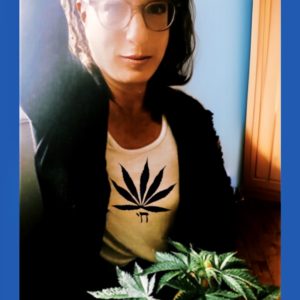This Content Is Only For Subscribers
As Jews try to navigate our new reality after October 7th, when Jewish suffering became the occasion for a global resurgence of antisemitism, many of us cannot help but recall the insistence of our elders that “Everyone hates Jews” with a newfound sense of dread and resignation.
This sentiment gets communicated in a variety of ways, to explain a variety of phenomena. For example, when the United States Holocaust Memorial Museum first opened, I heard more than one Jew explain its immediate, unparalleled popularity with the statement: “people love to see Jews suffer.” As a teenager at a Jewish day school, I didn’t know how to make-sense of this conviction or what to do with it. It was only recently, feeling this familiar dread, that I realized my rather eclectic career in academia spanning philosophy, Holocaust studies, and hip-hop studies has been a concerted effort to understand why people hate Jews, so that I could do something about it.
It was only after I moved to Nova Scotia, Canada and my olive-skinned complexion, locs and “Ilana” like demeanor smoking joints wherever I went (“It’s Canada!”) tended to confuse everyone, that I realized this dread we feel is not ours alone. Rather, it is felt by every group that has been racialized as “lesser than” white—it is a feeling of helplessness and impending doom, felt every time we are violently reminded that we can neither “end” racism nor accept that it is inevitable.
When I wrote my book on Hip-Hop as Philosophical Text and Testimony, I didn’t yet have the language to explain why it’s always confusing to be designated as a “White Jew,” and why the need to “check a box” to identify one’s racial identity produces a very real conflict for an Ashkenazi Jew. When my self-identification as a White Jew failed to answer the question of my identity posed by Nova Scotians invested in having a stop-and-chat to investigate the matter, I realized that our designation is non-sense. For the conjunction “White Jew” used to designate Ashkenazi Jews white-enough to be White is meant to signify both our racial and ethnic identities, but instead places them in a mutually exclusive relation such that I cannot identify as both White and Jewish at the same time.
If I am White, then I am not a member of a group that has been racialized as lesser than White, and my ethnic identity—my heritage as an Ashkenazi Jew—is irrelevant to who I am and counterproductive to my ability to know myself and be known as White. Alternatively, if I am Ashkenazi Jewish, then I cannot identify as White and still be known to myself as a remnant of the group destroyed as an existential threat to the White race.
For this reason, the designation of White Jew creates a semantic paradox that forces a choice in favor of one term or the other to make sense of those so-designated: White Jews are either “Just White” or “Not Really White.” The ability to perceive Ashkenazi Jews as “Just White” depends upon the view that the racialization of their ancestors in the past has nothing to do with their identity or position in the present. The ability to perceive them as “Not Really White” depends upon the view that the racialization of their ancestors in the past has everything to do with their identity and position in the present (and “They Will Not Replace Us”).
Ironically, then, the only way we can make sense of “White Jews” as a formal category is to presume that these particular Jews are assuming a false identity that obscures who they really are; in this way, the dilemma of our designation reinforces the Nazi sensibility of Ashkenazi Jews as racial imposters. The problem is that it is not possible to designate our position of conditional whiteness—in which we benefit and suffer from white supremacy at the same time—within a binary conception of race as a matter of being either Black or White.
Through this lens we can better understand the most recent antisemitic controversies in terms of a very real confusion about the racial identity of Ashkenazi Jews that is produced by the terms of our designation. We can also better understand the absurdity and cruelty of viewing Jews as “colonizers” in our ancestral homeland, which effaces our very recent past as the victims of a European-wide project to destroy us for the sake of ethnic homogeneity in the system of nation-states. To paraphrase Aimé Césaire, Jews were the victims of colonialism when applied inside of Europe’s boundaries.
I think the current moment requires a new approach to an intractable problem, and in my forthcoming book on Ashkenazi Jews, the logic of race and antisemitic paranoia, I suggest we start by informally adopting the term “Off-white” to designate the racial identity of light-skinned Ashkenazi Jews so that we can make sense of our group identity as a relation—rather than disjunction—between our ethnic heritage and racial history.








